The Western Australian State Emergency Service (SES) is a Volunteer based division of the Department Fire and Emergency Services of Western Australia (DFES).
It plays a key role in countering the effects of natural and man-made emergencies.
The SES Mission
To assist the community to cope with natural or man-made emergencies.
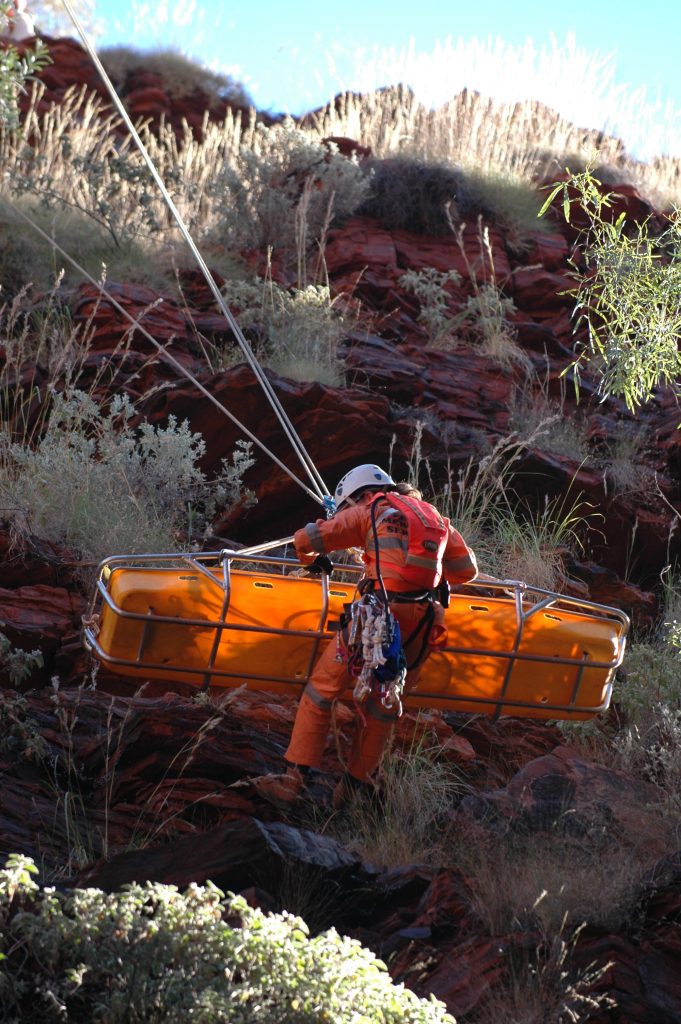
SES Volunteers
SES Volunteers are a dedicated group of people drawn from all walks of life, backgrounds and professions. They have a common desire to make a contribution within the community by providing emergency assistance.
These Volunteers make themselves available to attend to emergencies, 24 hours a day, 7 days a week as and when required.
SES Volunteers care about their communities and are not paid for the great work that they do.
Disasters & Emergencies
The SES is a Volunteer organisation with aim to help WA communities in times of emergency and disaster.
Each year the SES receives thousands of calls for assistance.
The State Emergency Service (SES) becomes involved in a wide range of disaster and emergency related operations.
Volunteer Training
To allow these operational activities to be responded to effectively and safely the SES has a responsibility to ensure adequate and appropriate training is available to its members.
This training provides SES Volunteers with the appropriate skills & knowledge to enable them to perform their operational tasks and functions in a safe and effective manner.
Training Framework
The SES has developed a comprehensive training framework based the Public Safety Training Package that meets the operational requirements of the service.
As a part of this framework a training recognition process has been developed which provides external and internal forms of recognition for specific disciplines. These forms of recognition include a range of Nationally Recognised Qualifications at Certificate II and III level.
There is also a competency maintenance system based on ongoing peer assessment recorded in a log book. This system is designed to monitor the skills and knowledge maintenance associated with specific disciplines.
Roles of the SES
Prevention
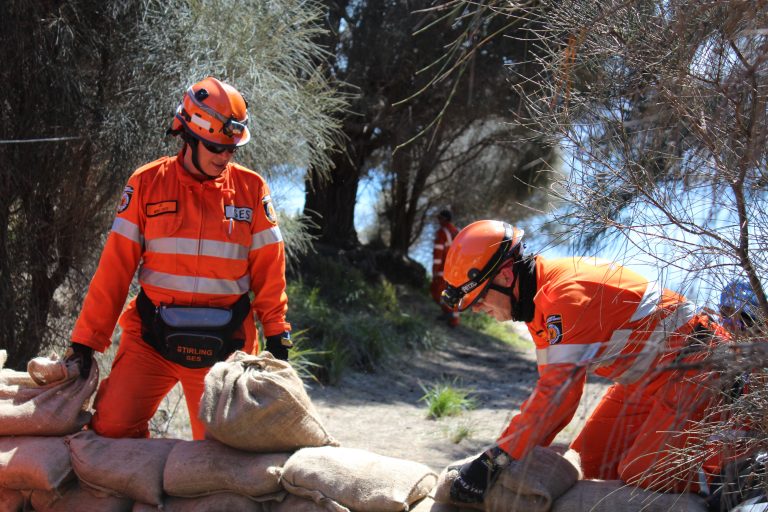
Prevention activities that can be completed by community members to reduce the impacts of mother nature’s storms, cyclones, floods, earthquakes and even tsunamis. This is indeed a partnership approach that includes the influence of you as a community leader, the state as a resource supplier and your community’s SES Volunteers.
Preparedness
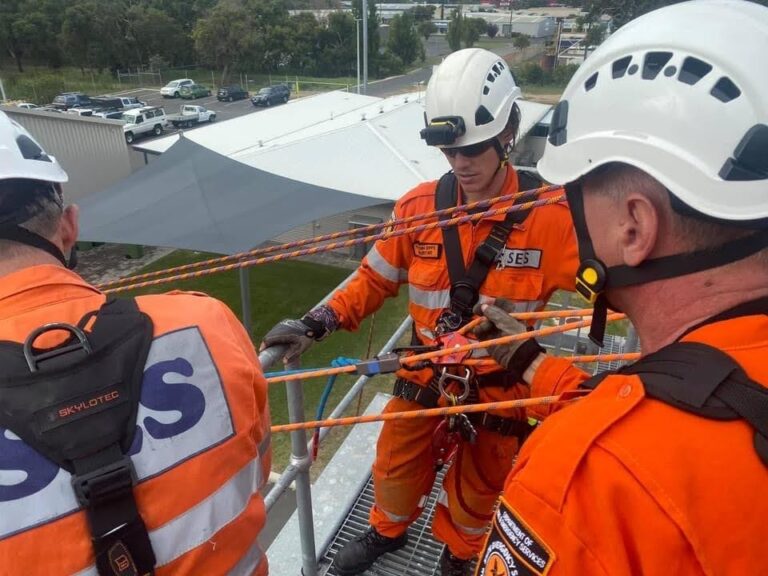
Preparation actions are simple and easy to achieve and reduce the impact of many events on the communities as a whole. Whether this be business interruption, loss of community facilities and community member responsibility to themselves, their families and each other.
Response
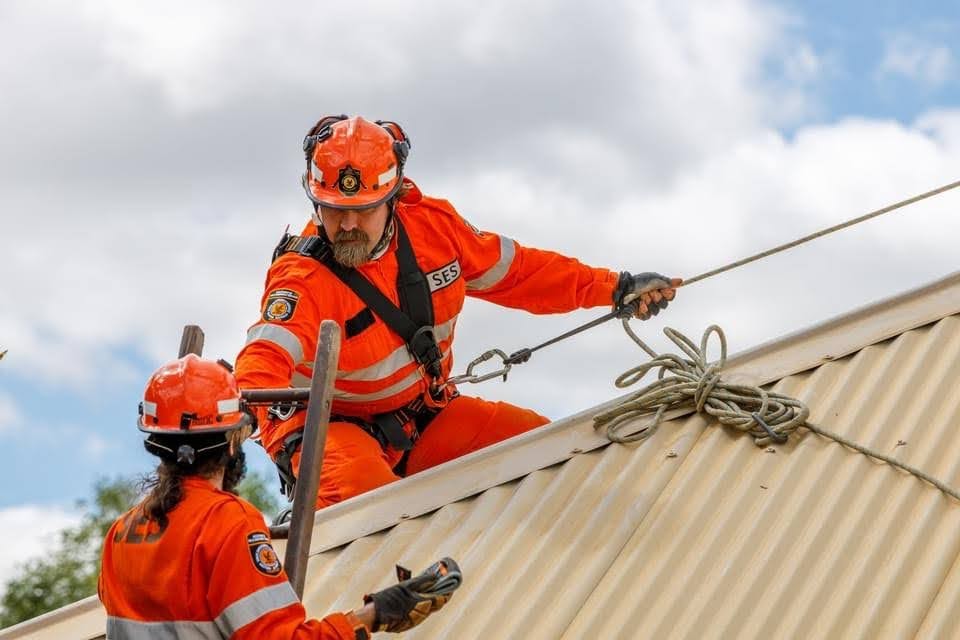
Response is a service that is state sponsored, but it should be recognised that the community raised Volunteer emergency services are in place at a ratio of 30 Volunteers to 1 career person. Community support is the back bone of local response and needs local support.
Recovery
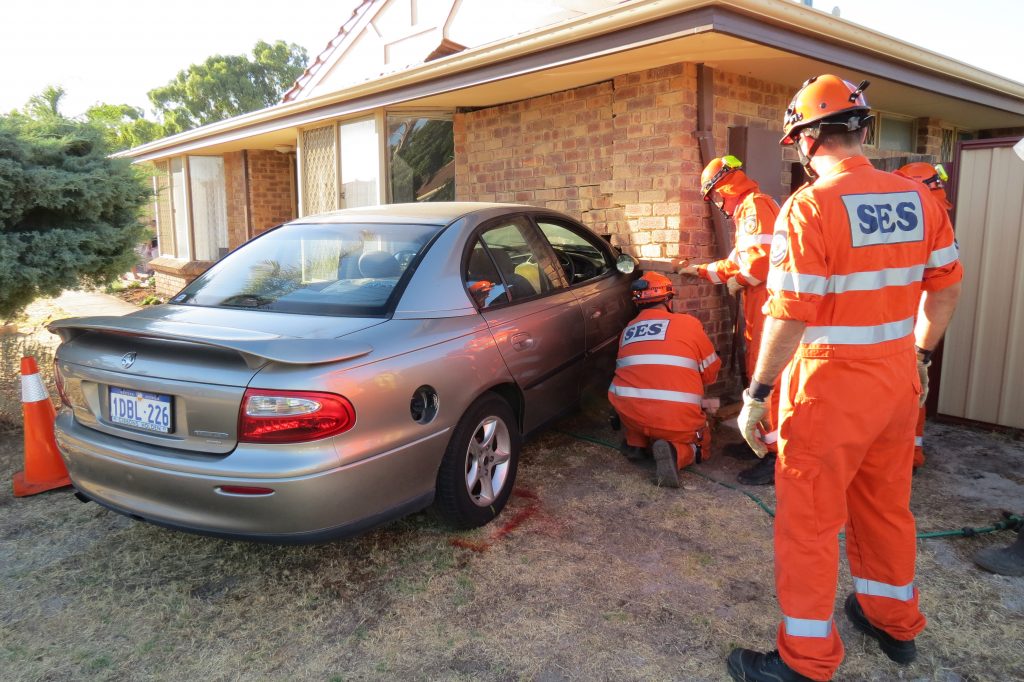
Recovery is an essential process following many incidents that impact communities. The best way to address the healing process is to engage the community membership in activities that allow for self-direction. This starts in the prevention phase for best results.
We all have a part to play
In order for volunteers to work with the community and keep it safe, a number of groups and organisations provide financial, logistical and infrastructure support. With these three groups working together, both the community and volunteers become better equipped to face future challenges.
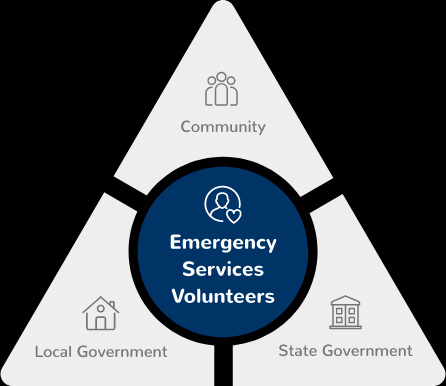
Community
The local community and not-for-profit groups provide support by working collaboratively alongside volunteers before, during and after emergencies. This ensures that everyone takes responsibility for building resilience within the community.
Local Government
Local government bodies work actively within the community to support bush fire brigades and other volunteer groups. During emergency incidents, local governments help to facilitate response and recovery efforts.
State Government
A number of State Government departments assist communities and help them prevent, prepare, respond and recover from emergencies. These departments include the Department of Fire and Emergency Services, Parks and Wildlife Service, WA Police and Department of Communities.

